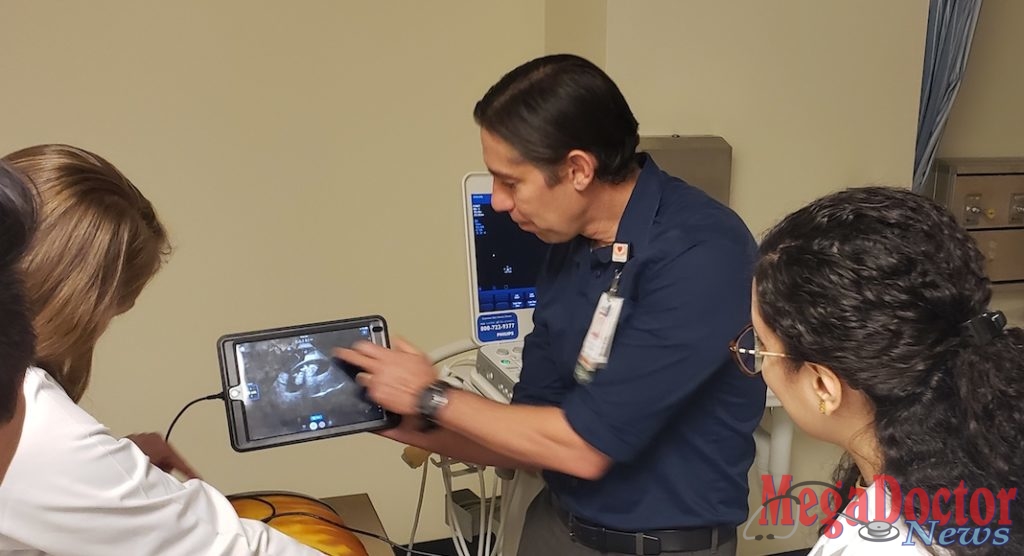Exercise Key to Living, Maintaining Healthy Lifestyle

Mega Doctor News
With June officially serving as Men’s Health Awareness Month, there is no better time for men who normally put their own health on the back burner to take stock of their personal fitness. Physical inactivity, high blood pressure, and smoking are risk factors for heart disease, the number one killer of men in America. Over time, fat and cholesterol can build up in blood vessels. When arteries that supply the heart and brain with blood become clogged, a heart attack or stroke can occur. These risk factors can be reduced by living a healthy lifestyle.
While there is no cure-all when it comes to living a healthy lifestyle, Dr. Christopher Romero, a physician specializing in Internal Medicine, said exercise can reduce the risk factor for a wide array of serious health complications and diseases ranging from stroke to diabetes.
“If there was a medication available today that could accomplish all of the health benefits that exercise provides nearly everyone would be on it,” Romero said. “Regular exercise is one of the single most important factors for improving overall health and has been shown to increase life expectancy.”
Exercise can help keep the body’s blood vessels open and reduce the risk of heart disease, stroke, and high blood pressure. Exercise can also have a positive impact on cholesterol levels, raising levels of good cholesterol while reducing bad cholesterol numbers. “Exercise can also lower the amount of fat in the bloodstream, assist in weight loss, and make the heart and lungs work more efficiently,” Romero said.
While it is important to consult a physician before incorporating any new exercise routine into plans for living a healthier lifestyle, walking, stair-climbing, dancing, jogging, and other activities of at least moderate-intensitycan also help prevent or manage several chronic diseases that become more common with age: type 2 diabetes, osteoporosis, and arthritis.
Both body and mind can benefit from exercise. Exercise can help manage stress, make life more enjoyable, boost self-image, and help counter anxiety and depression.
“Significant improvements in overall health can be achieved with even the most modest increase in activity,” Romero said. “The key is starting with simple, achievable goals that when combined over time can turn into really great results.”
The Centers for Disease Control and the American Heart Association recommend at least 30 minutes of moderate intensity aerobic activity, four to five days a week. Both organizations also recommend moderate to high-intensitymuscle strengthening activity at least two days a week.
Examples of moderate activities include:
- Walking
- Gardening
- Doing housework
- Ballroom dancing
For increased benefit to your heart and lungs, try more vigorous aerobic activities like:
- Jogging or running
- Swimming laps
- Bicycling briskly
- Aerobic dancing
- Rowing
Use these tips to move toward a more active life:
- Choose enjoyable activities. The key to starting and sticking with an exercise program is picking the right activities. Then choose a convenient time and place to work out. Try to make exercise a habit. Finding an exercise partner may make it easier to stick to a regular schedule.
- Build up endurance. Start out by exercising slowly and gradually build up intensity and duration of exercise sessions. Overdoing exercise increases the risk of injury. Do not ignore any pain in joints, ankles, feet, or legs.
- Drink plenty of water. During exercise, drink water every 15 minutes, especially in hot, humid conditions. Be sure to drink before experiencing feelings of thirst.
- Check with a healthcare provider before starting any new exercise program, especially when starting from a long period of inactivity, or if you have a chronic health problem like heart disease, diabetes, or obesity, or if you are at high risk for developing these problems.
In addition to exercise, maintaining a healthy diet is very important. A diet that is low in fat and calories, is another weapon for fighting cardiovascular disease, stroke, and many other conditions.










